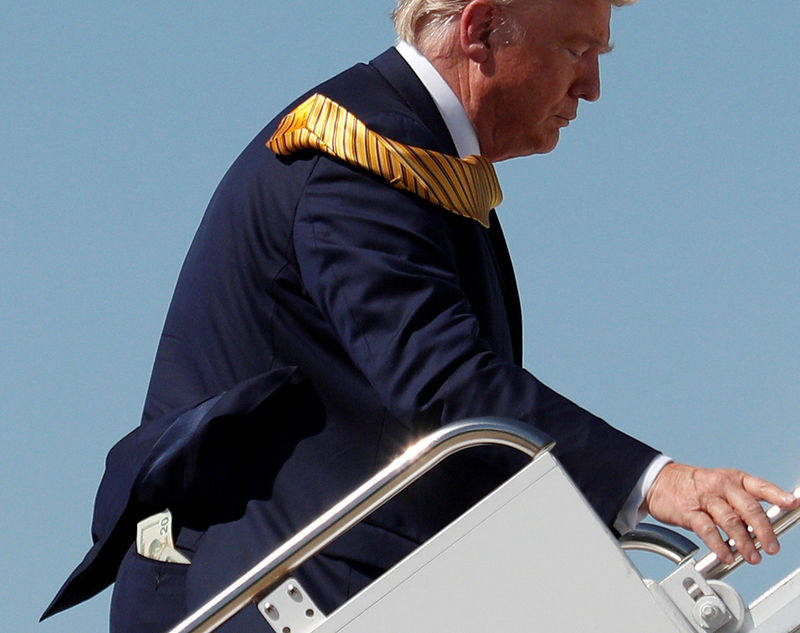By Andrea Shalal
WASHINGTON (Reuters) - Nearly two dozen U.S. lobbying groups have joined forces to try to rein in U.S. President Donald Trump's power to unilaterally impose tariffs amid growing concern about the negative economic impact of his trade policies.
Led by the National Foreign Trade Council (NFTC), the groups on Wednesday said they had formed the Tariff Reform Coalition to urge Congress to wrestle back greater control over trade policy and increase its oversight of the president's use of tariffs.
Trump, who has dubbed himself "Tariff Man," has imposed or planned tariffs on steel, aluminium and nearly all $500 billion in products imported from China each year, as he pursues an "America First" policy aimed at rebalancing U.S. trade ties.
NFTC President Rufus Yerxa said the U.S. Constitution gave Congress the power to regulate commerce, and lawmakers should ensure that tariffs were used only in exceptional circumstances.
"Not since the 1930s has our country relied so heavily on tariffs in an attempt to pick winners in the U.S. market while overlooking the broader consequences for other industries and our economy as a whole," he said in a statement.
The 23 groups outlined their concerns in a letter to the two congressional committees that oversee foreign trade, the House Ways and Means Committee and the Senate Finance Committee.
"It is clear that many of the Administration's tariff actions over the past two years have had significant collateral effects on domestic prices and have led to extensive retaliation against our exports," the groups wrote, warning that measures still under consideration could inflict further harm.
The letter was signed by large U.S. trade associations, including the Grocery Manufacturers Association, the National Retail Federation, the Association of Global Automakers, and the American International Automobile Dealers Association.
The initiative comes as frustration has grown on both sides of the political aisle about the president's use of unilateral measures to impose tariffs, often citing "national security concerns," and to conclude trade agreements with little to no consultation with Congress.
Trump administration officials insist the tariffs on China are paid by the Chinese, but U.S. farmers, retailers, manufacturers and others say the duties are taking a toll on their industries. The measures have also repeatedly roiled financial markets.
The groups urged lawmakers to carry out a robust review of the president's policies, and said it stood ready to work on legislation that would curb his authority.
U.S. lawmakers are considering several pieces of legislation that would limit Trump's authority under Section 232 of the Trade Expansion Act of 1962. Trump has used the law to impose the tariffs on steel and aluminium imports, and to threaten car tariffs against Japan and Europe.
Representative Kevin Brady, the top Republican on the House Ways and Means Committee, said Congress wanted to maximize its role in trade policy, but there was no consensus on how to do that.
At the same time, he said lawmakers agreed on the need to challenge China, but he was cautiously optimistic about Washington and Beijing eventually reaching a trade agreement.
He said lawmakers were still waiting for details about a mini-trade deal reached by Washington and Tokyo this week, including whether the White House had the authority to be able to execute such a deal as part of a two-step process.

"Bottom line is, we want a comprehensive agreement with Japan," he said. "And we'll be weighing whether this first step leads up to the second."